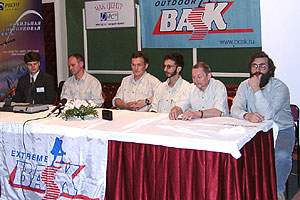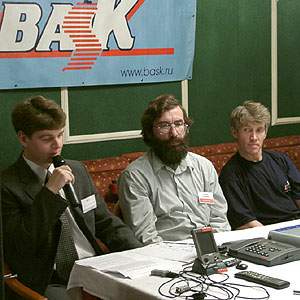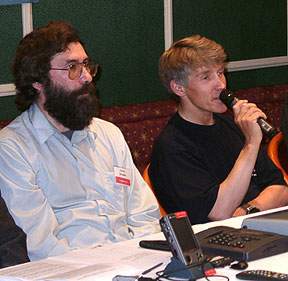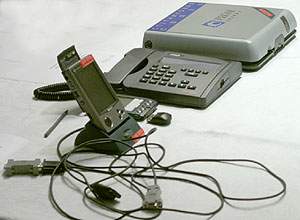 |
On June 7 press conference devoted to two mountaineering projects, technical support, which provided the Company Formation and MakTsentr our site. The first - a solo ascent of the Himalayan peak of Meru International Master of Sports in mountaineering Valery Babanov. Recall that Valery was equipped with a set of special equipment for communications with the mainland "and the media. Includes: Cassiopeia E-115 and a satellite phone Inmarsat. The second - an ambitious project "Russian way - the walls of the world." His manager from St. Petersburg, Alexander Odintsov. Project participants have set the goal to conquer the 10 most difficult mountain wall in the world. Five of them have already been taken by storm and entered into climbing directories. But here's the sixth refuses to surrender. It is a mountain Latok 3 in Pakistan. Its height is 6,950 meters and looks like it is, in the opinion of a beginner, innocuous. But last year, almost all the expedition members were seriously injured and had to stop lifting. June 8, they again depart to Pakistan once again to match themselves with whimsical wall. But this time we will be able to witness all the vicissitudes of this climb, thanks to set of communication, already proven in the Himalayas. True, the set of equipment slightly modified: instead of Cassiopeia E-115 mission will depart Palm 3xe. At the press conference were made by staff MakTsentr Anton Kuznetsov, who briefly summed up the Himalayan expedition, from a technical point of view and described the preparation of the expedition, "Russian way - the walls of the world."
The first question asked by reporter:
Why, indeed, need a communication system climbers?
 |
Expedition climbers tend to be very spectacular and dramatic. All that remains on the proportion of relatives of the conquerors, the media and fans of extreme sports - it's the stories, photos and short video made by them. Keep in touch with the athletes during the ascent, until recently, it was simply impossible. Now the mobile communications systems to rapidly track the progress of the expedition, its successes and failures. Modern mobile communication can send and receive not only voice but also data. For example, digital images, video and so on. The cost of high-speed devices for data transmission and broadcasting time are very high, to be soon available for the Russian climbers. In many such cases, managers of low-budget expeditions to acquire voice satellite phone. In this case, once there are problems associated with "time-to-bond", voice mailboxes, and other complexities. Of these problems can be avoided and work some more familiar, oiled, more "digital" manner. For example, through e-mail with a PDA or laptop. Thus, we kill two birds. First, get rid of unnecessary care - a man who takes on a keyboard voice. Secondly, significantly increases the efficiency of work with information. Emails can be sent directly to multiple addresses. In addition, satellite messages can be handled by a special program and automatically appear in the form of news in the Internet media. E-mail and internet facilities - the cheapest and most reliable tools for rapid coverage of expeditions. Another definite plus. Mobile communication systems allow access to information about weather conditions, which in certain circumstances can be invaluable to the expedition.Here, too, can be saved if we can automate the transfer of meteorological reports via email or simply adjust the equipment to receive reports from public web-sites. Such a set of links will keep abreast of rescue services. At times, rescuers are simply not enough information about what happened and where to look. In this and in many other cases, mobile communication can be truly irreplaceable.
Set of communication in this case consists of a satellite phone Inmarsat, working as a modem and a handheld computer. Why the expedition Valery Babanov and project Russian way - the walls of the world "have been selected handhelds, not laptops?
Satellite phones
Virtually all modern satellite phones have built-in data transmission. As mentioned above, the higher the data rate, the higher the actual phones themselves. For the expedition was purchased low-end model Inmarsat satellite phone network with data transfer rate 2400 bits per second. By modern standards it is very little, however, to send text and small digital imagery is quite acceptable.
Laptops or PDAs?
For expeditions to the small number of participants, from one to two or three dozen people in particular is especially important weight communications equipment. Set out a laptop and satellite phone with all accessories, but excluding batteries, can easily reach 10 kg. What is 10 kg? This twenty-day supply of food for one person. Quite a lot. Power supply in case of a laptop at all sore point. Average laptop actually runs on battery packs up to 3 hours. More expensive models, as well as new items on the Crusoe processor can work up to 6-10 hours. In this case, the battery itself will weigh about one kilogram with battery for the phone. Is there a solution easier and more affordable? Yes. This handheld computers. They can perform all the tasks we set ourselves a set of communication - to work with email, the Internet. Weight of such machines without batteries around 150-300 grams. Cells and batteries also weigh quite a bit. Battery life varies depending on the nature of the work of 8 hours in the case of color handhelds running Windows CE up to 30-40 hours in the case of using PDAs to Palm OS. But here is firmly on the fragile form of handheld computers? Despite constant assurances of manufacturers that standard PDAs are only consumer electronics, it is safe to say that, following the well-known precautions, they can be used in harsh environments. A striking example is the use of a blizzard sets of GPS-based handheld computers in the winter expedition in the Polar Urals. In addition, unlike laptops pocket computers have no moving parts that are sensitive to shock and vibration. In general, all indicators bunch of handheld computer with the phone is perfect for expeditions to the small number of participants. This set of equipment can be called a "godsend for the Athlete: handheld computers capable of working long without recharging, weigh little and have a sufficient margin of safety.
I must say that the Pocket PC in conjunction with a satellite phone completely subdued Valery Babanov and his wife, Olga, for easier handling. Especially because he Valery, as he admitted just recently purchased a home computer.
Ease of use
 |
Preparation of the equipment for mobile communications requires a professional approach.The company's experience in the field MakTsentr connect one mobile to another is enormous. Nevertheless, in preparing the first set of communication, our specialists are faced with several challenges, some of which were resolved on an expedition to measure, and part of the preparation of climbing Latok. For example, to improve the reliability of the connection handheld satellite phone was made a special cable, whose role is the first time performed a composite cable. The choice of the necessary software, as well as adjustment of software settings and hardware are also a task for professionals. One of the prerequisites - the ability to backup data and restore them in case of emergency release of data on the Pocket PC. This problem is also solved by our experts. After fixing a set of communication equipment are trained members of the expedition, they are given detailed instructions. So, from that moment everything becomes very clear for a simple user. For example, to use e-mail him enough to perform a few simple manipulations. The same applies to restoring data from backup. Of course, some experience with computers still needed, it can be quite minimal. A striking example is the experience of using a set of mobile communication on the basis of Cassiopeia E115 in the expedition Valery Babanov the peak of Meru. According to the Valeria work with the complex did not cause any difficulties.
Of course, not everything is running smoothly. But here is summed up not a PDA, a satellite phone ...
The problem of energy supply
So, the problem of weight, size and power consumption when using the Pocket PC virtually nullified. Remains a satellite phone. Here, unfortunately, the situation is somewhat worse. Battery for the phone is comparable to the battery for a laptop. In long-duration expedition to recharge it. At the moment this problem is not solved, although developments in this direction is. Output could be solar panels to produce completely mastered by domestic industry. Unfortunately, the prototypes did not have enough functionality for field testing.
Finally, the conclusions, findings, conclusions ...
Experience the expedition to the Polar Urals showed:
1. GPS-based navigation kits PDAs reliability and functionality.
2. Handhelds tolerably working in extreme cold.
3. Sets the navigation help of the expedition to find the correct path of descent from the pass in the almost complete lack of visibility Experience expedition to the peak of Measure:
1. Set of communication on the basis Cassiopeia E-115 and Inmarsat satellite phone is reliable and functional.
2. Working with e-mail, data entry, editing and other operations on the handheld computer is extremely intuitive.
3. A properly configured in the preparation and organization of the expedition set backup - the key to success. References to:
A page dedicated expeditions
The article "How to prepare an expedition to Russia"
Interview with Valery Babanov
Descriptions and characteristics of the devices authors, translation:
HPCru



